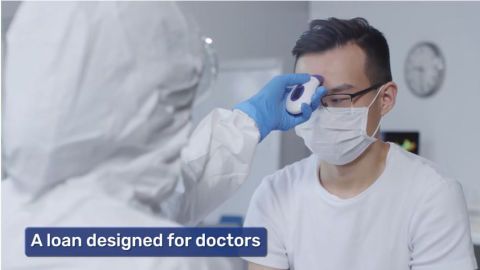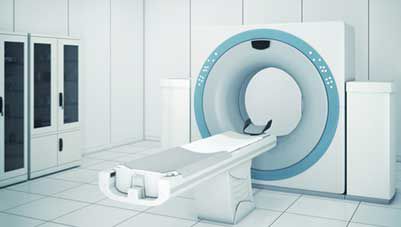Respiratory therapists play a crucial role in the healthcare system by helping patients with breathing difficulties and respiratory disorders. As specialised healthcare professionals, they work closely with doctors, nurses, and other medical staff to provide essential care for patients suffering from acute and chronic respiratory conditions. The demand for respiratory therapists has grown significantly, especially during health crises like the COVID-19 pandemic, highlighting their importance in critical care and rehabilitation.
If you are interested in pursuing a career in healthcare or are looking to support your medical career financially, options such as a doctor loan can help you manage expenses related to education and professional development.
Who is a respiratory therapist?
A respiratory therapist is a trained healthcare professional specialising in the assessment, treatment, and management of patients with respiratory illnesses and disorders. They use various medical equipment and techniques to assist patients in improving lung function and managing breathing difficulties. Their expertise is vital in hospitals, outpatient clinics, emergency care, and rehabilitation centers.
Roles and responsibilities of a respiratory therapist
Respiratory therapists perform several critical functions in patient care, including:
- Assessing patients’ respiratory conditions using diagnostic tools like spirometry and arterial blood gas analysis.
- Administering respiratory therapy treatments such as oxygen therapy, inhalation therapy, and mechanical ventilation.
- Monitoring ventilators and other respiratory support devices for critically ill patients in ICUs.
- Educating patients and families about managing chronic respiratory diseases and preventive care.
- Collaborating with physicians and healthcare teams to develop and implement treatment plans.
- Responding to emergency situations requiring immediate respiratory intervention.
- Maintaining and calibrating respiratory equipment to ensure safety and efficacy.
Common conditions treated by respiratory therapists
Respiratory therapists are involved in treating a range of respiratory illnesses and conditions, including:
- Asthma – Managing airway inflammation and preventing attacks.
- Chronic Obstructive Pulmonary Disease (COPD) – Assisting patients in managing symptoms and improving quality of life.
- Pneumonia – Supporting oxygen therapy and ventilation needs.
- Bronchitis – Providing treatments to ease airway obstruction and inflammation.
- Cystic fibrosis – Assisting with airway clearance and breathing support.
- Respiratory failure – Managing mechanical ventilation and oxygen delivery.
- Sleep apnea – Administering CPAP therapy and other treatments.
Steps to become a respiratory therapist
If you’re interested in this rewarding healthcare career, here are the typical steps:
- Complete high school education with a focus on science subjects.
- Enroll in an accredited respiratory therapy program (associate’s or bachelor’s degree).
- Gain clinical experience through internships or supervised training.
- Obtain certification and licensing to practice professionally.
- Seek employment in hospitals, clinics, or other healthcare settings.
- Consider advanced degrees or specialisations for career growth.
Educational requirements for respiratory therapists
Education is a foundational step for becoming a respiratory therapist:
- Associate degree in respiratory therapy: A 2-year program covering respiratory anatomy, physiology, pharmacology, and clinical practice.
- Bachelor’s degree: Offers in-depth knowledge and may open doors for leadership roles.
- Continuing education: Many therapists pursue certifications or advanced training to stay updated with evolving healthcare standards.
Respiratory therapist certification and licensing
Certification and licensing are mandatory to ensure competency and patient safety:
- Certified Respiratory Therapist (CRT): Entry-level certification after passing the National Board for Respiratory Care (NBRC) exam.
- Registered Respiratory Therapist (RRT): Advanced certification requiring further testing and clinical experience.
- State licensing: Most states require therapists to obtain a license, which may involve additional exams or continuing education credits.
- Specialty certifications: Options include neonatal-pediatric, adult critical care, and pulmonary function testing.
Skills required for respiratory therapists
To excel in this career, respiratory therapists need a mix of technical and interpersonal skills:
- Strong understanding of respiratory physiology and medical equipment
- Critical thinking and problem-solving abilities
- Effective communication skills to educate patients and collaborate with healthcare teams
- Compassion and patience to support patients with chronic or severe illnesses
- Attention to detail for monitoring treatment progress and equipment safety
- Physical stamina to assist patients and operate equipment in fast-paced environments
Work environments for respiratory therapists
Respiratory therapists work in diverse healthcare settings, such as:
- Hospitals (ICUs, emergency rooms, pulmonary wards)
- Outpatient clinics
- Rehabilitation centers
- Home healthcare services
- Sleep disorder centers
- Research and education institutions
Career growth and advancement opportunities
Respiratory therapists can advance their careers by:
- Pursuing advanced degrees such as a bachelor’s or master’s in respiratory therapy or related healthcare fields.
- Specialising in areas like neonatal care, critical care, or pulmonary diagnostics.
- Taking leadership roles such as clinical supervisor, department head, or educator.
- Engaging in research and healthcare innovation to improve respiratory care.
- Obtaining certifications in specialised therapies or management.
Pros and cons of being a respiratory therapist
| Pros | Cons |
|---|---|
| High demand and job stability | Physically demanding work |
| Rewarding impact on patients’ lives | Exposure to infectious diseases |
| Competitive salary and benefits | Irregular and long working hours |
| Opportunities for specialisation | Emotional challenges working with critically ill patients |
| Variety of work environments | Need for ongoing education and certification renewal |
Conclusion
Respiratory therapy is a vital and rewarding healthcare profession focused on improving patients’ breathing and overall lung health. The career offers strong growth potential and the chance to make a meaningful impact on patients’ lives. With proper education, certification, and skills, you can build a successful career in this dynamic field. For medical professionals seeking financial support, a doctor loan can help with career advancement or equipment purchases.











